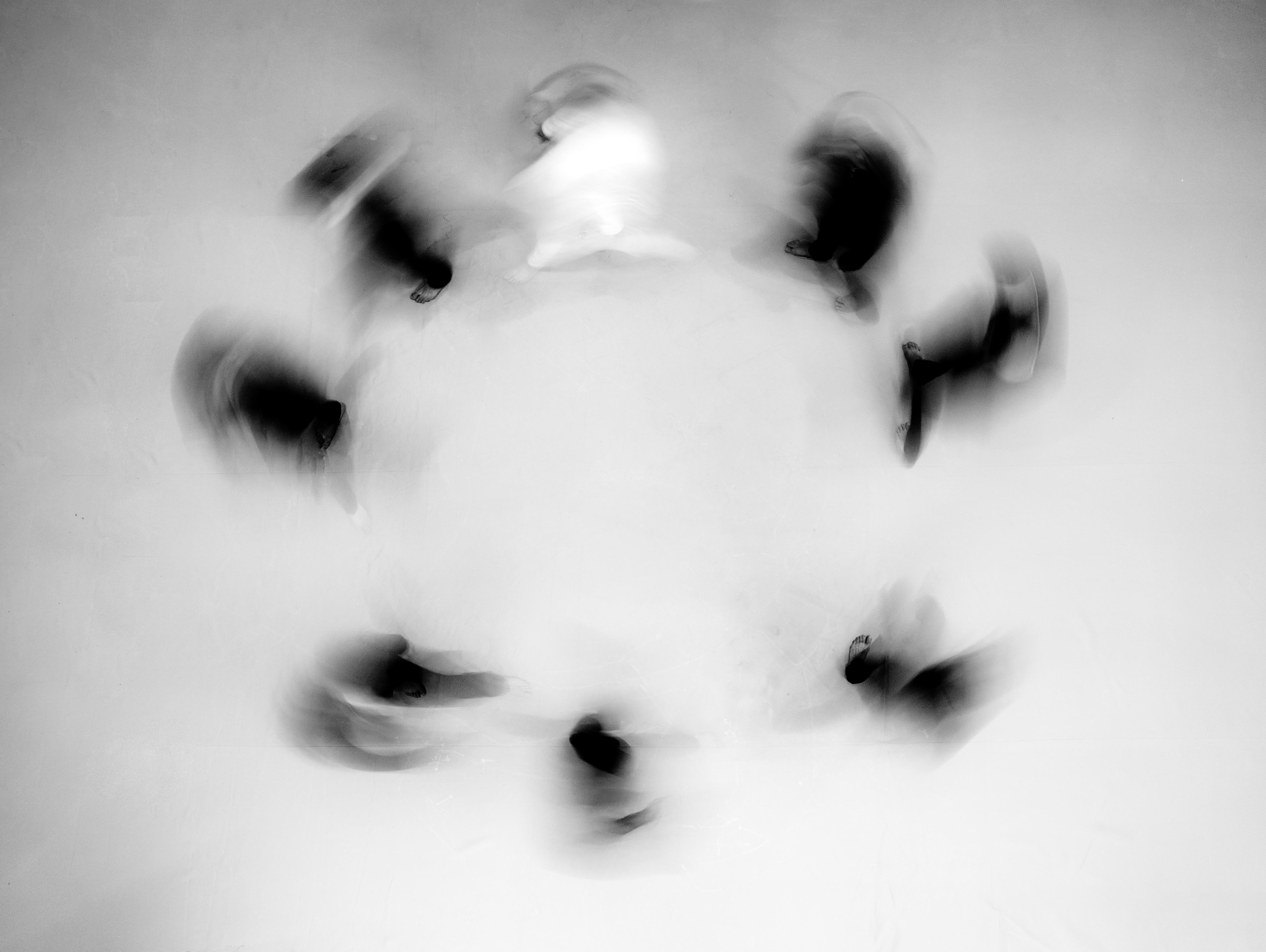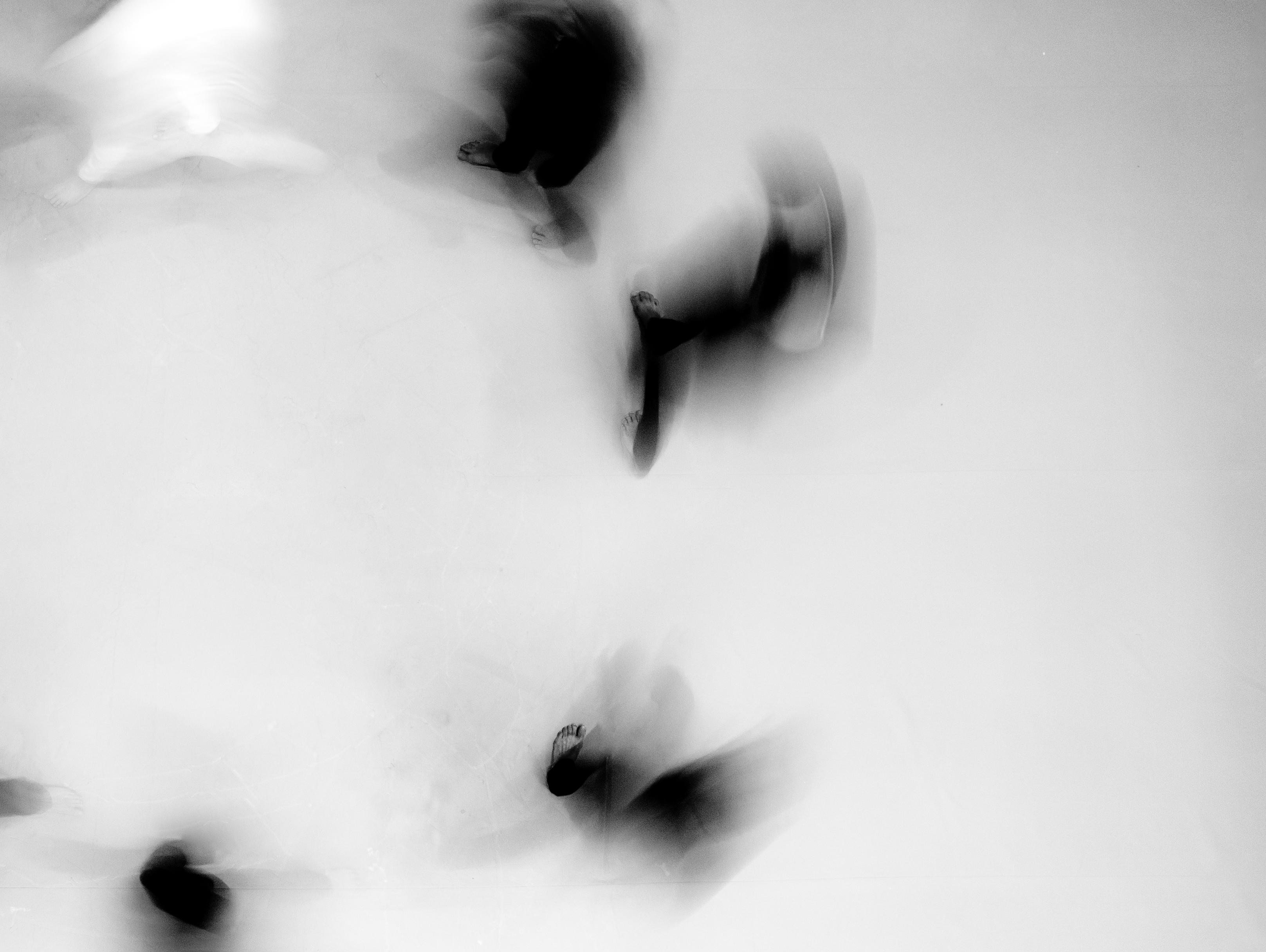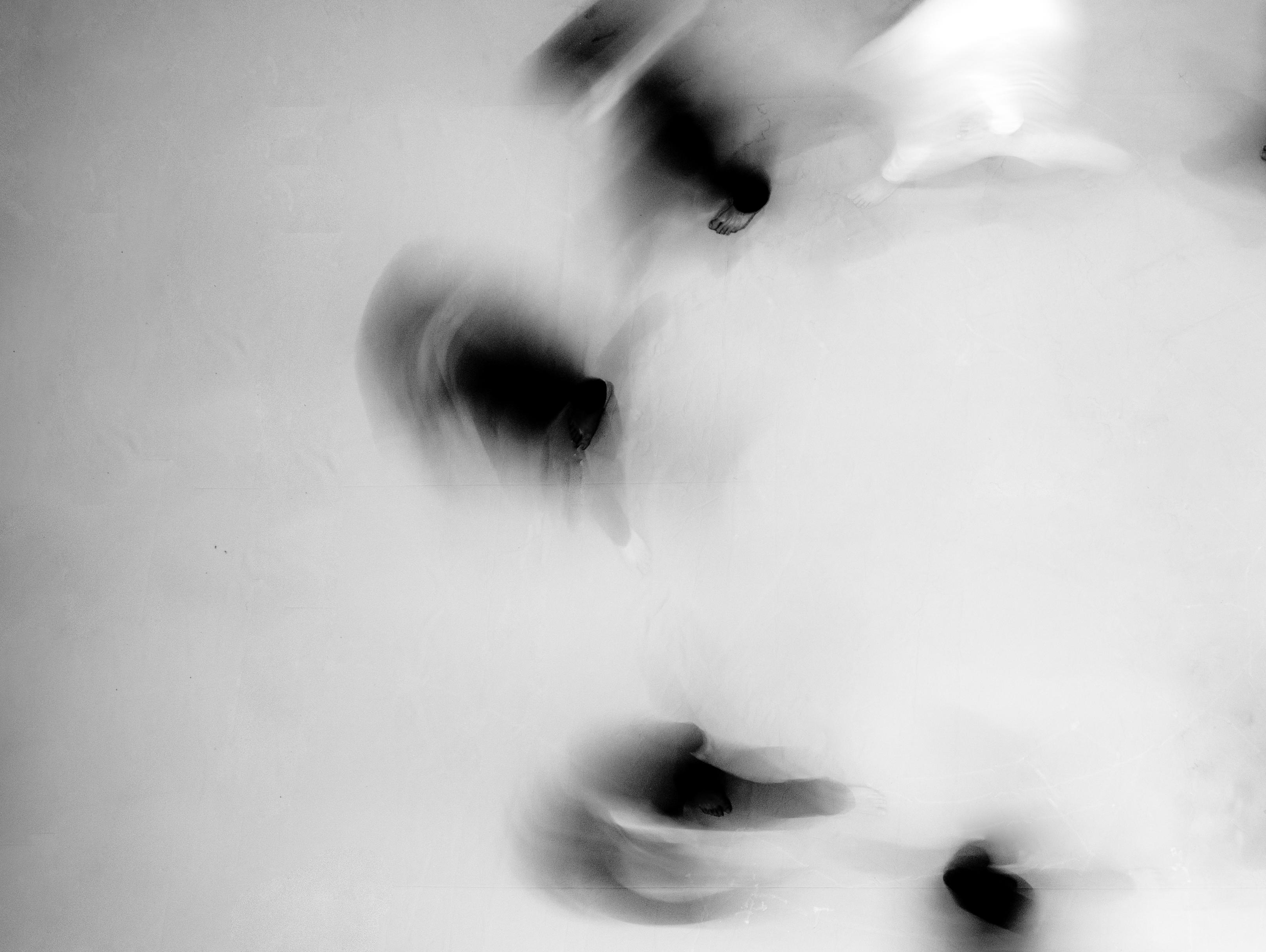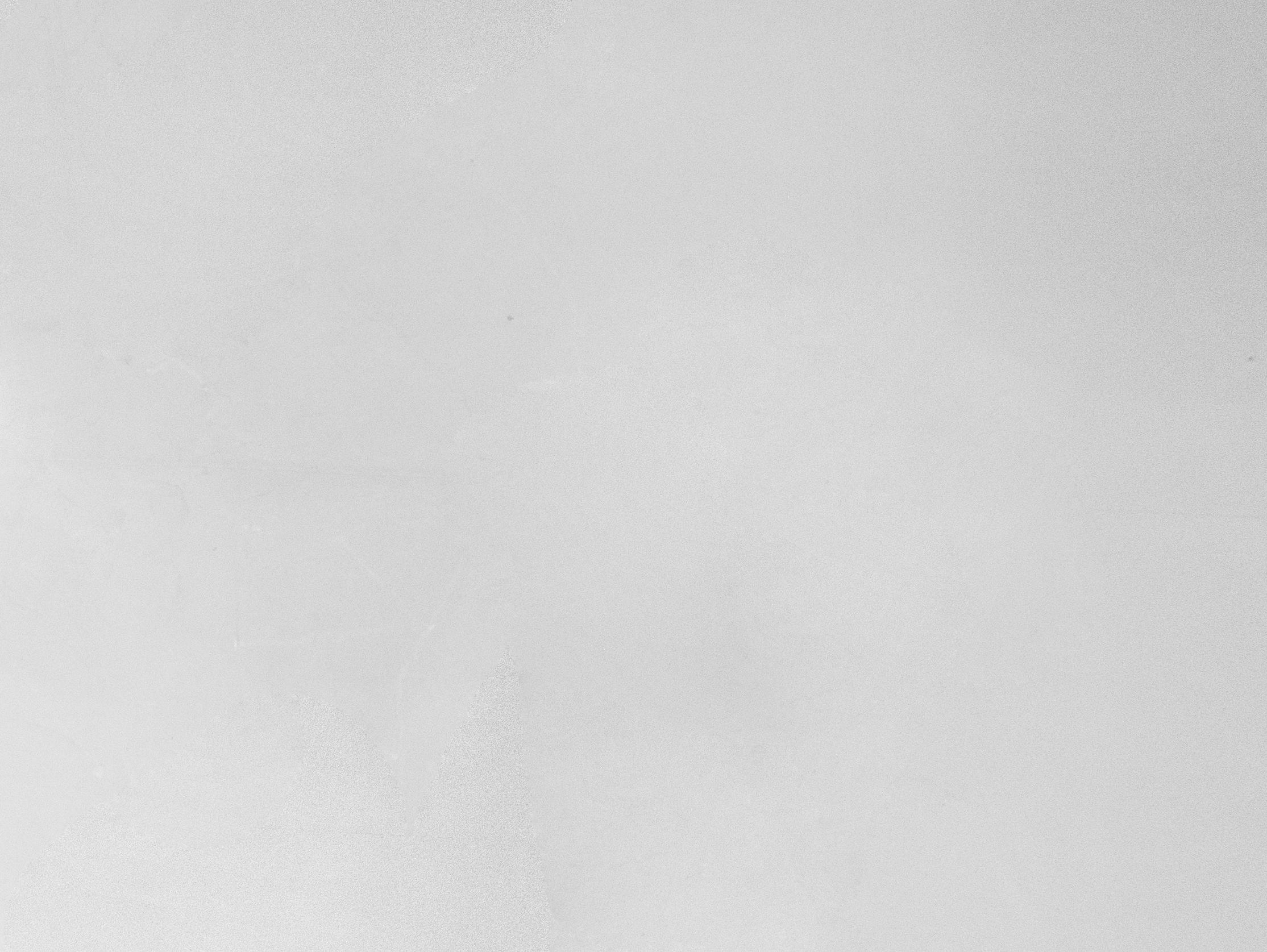HIGH OCTANE OCTET
LA NOCTURNE


1. Ouverture des Champions 2. Ah Bon ?! 3. Au BOut d'un Moment 4. La Première Colline 5. Lost in a Nocturne 6. Huile d'Olive Blues 7. La Troisième Variation 8. Opel Corsa Tuning 9. La Marche Nocturne total play time: 5'40 6'47 5'52 10'50 5'12 6'49 6'25 8'12 8'28 64'19
OCTET LA NOCTURNE
Gabriel Rigaud piano & compositions

YoAN Godefroy double Bass
Valentin Jam drums
Hugues lehembre baritone sax
Ezéquiel Celada Tenor sax
Gabriel Fernández Alto sax
Sami KhalfOune trombone
Olivier Dullion trumpet
“Creativity is more than just being different. Anybody can plan weird; that’s easy. What’s hard is to be as simple as Bach. Making the simple, awesomely simple, that’s creativity” –
Charles Mingus
I have to agree with this statement: the voice of beauty in music comes first of all through the search for simplicity. And yet, when you listen to the compositions of Charles Mingus, the solos of Thelonious Monk, the last concerts of John Coltrane, it is not simplicity that jumps out at you. One thinks more of a Beatles melody, a Mozart minuet or a Bach prelude when it comes to musical simplicity. But I think Mingus is talking about the essence of music; that aesthetic is then shaped by the social, political and artistic context of an era. What connects these artists is this common quest for the ‘obvious’.
It is common in the career of a musician to come up against the disappointing results of music that is too intellectual; complex for the sake of complexity. I remain convinced that the first musical idea must be simple and spontaneous, and that one must throw oneself body and soul into the obvious. When I listen to the great composers or improvisers, what touches me is the purity of the melodies; I have the impression that all the notes played were there beforehand.

Music is of course not only about composition: interpretation and arrangement have major roles to play. Our Octet La Nocturne plays strange, surprising, sometimes funny music. It is the result of a transformation, a shift, like a sad story told with a smile. The Octet is a clown, sometimes cheerful, sometimes sad, sometimes lyrical, but never serious. Irony and humour. Literature and theatre use both, but music often remains too perfect, too smooth, as if it had a duty to seduce. The Octet is irreverent. Humour and irony enter the music; a test of authenticity. The music emerges smiling, more confident, sovereign. We have the privilege of being able to invest ourselves entirely in something that is not really serious, aware that as artists we are above all artisans of the useless.
Jazz is our pretext, the compositions are our thread. Each piece is a painting, each performance is unique. The improvisations go beyond the ensemble. The Octet is always open to a crazy idea that could come from one musician, the rest of the group being ready to blend in smoothly. The energy that emanates from the Octet is the result of a symbiosis between all these musicians who, for a moment, play, breathe and laugh together. This first album is a suspended moment.
gabriel rigaud
enG
Created in 2015, the Octet La Nocturne is a French jazz band based in Montpellier. It began as a gathering of musicians passionate about the jazz of the 1950s and 60s. Inspired by Charles Mingus's workshop, the first objective was to get together to play improvised jazz but with the configuration and sound of a 60s octet. A name was born at the same time as their first composition, Lost in a Nocturne. The Octet has been in constant evolution ever since, navigating between its hard bop aesthetic and the modernity of its time. Since its creation, the OLN has performed on various stages across France in concerts that have allowed the band's sound to be welded together. Basing its repertoire on original compositions, the group, through the intermediary of pianist and composer Gabriel Rigaud, offers a sensory journey, not hesitating to use the tools of free jazz, the voices of its protagonists or references to contemporary music. Sometimes romantic, sometimes funny, but always surprising, these musicians themselves never really know where they are going, but they venture there like the American jazzmen they cherish.
 Gabriel Rigaud
Gabriel Rigaud
Hugues lehembre


YoAN Godefroy
“La créativité, ce n’est pas juste être différent. N’importe qui peut agir bizarrement ; c’est facile. Ce qui est difficile, c’est d’être aussi simple que Bach. Rendre les choses simples, superbement simples, c’est ça la créativité.”
Charles Mingus
Je ne peux qu’être d’accord avec cette affirmation, la voie de la beauté en musique passe d’abord par la recherche de la simplicité. Et pourtant, quand on écoute les compositions de Charles Mingus, les solos de Thelonious Monk, les derniers concerts de John Coltrane, ce n’est pas la simplicité qui saute aux oreilles. On pense plus à une mélodie des Beatles, un menuet de Mozart ou à un prélude de Bach quand il est question de simplicité musicale. Mais je pense que Charles Mingus parle de l’essence de la musique, l’esthétique est ensuite modelée par le contexte social, politique et artistique d’une époque. Ce qui relie ces artistes est cette quête commune de “l’évidence”.
Il est commun dans la carrière d’un musicien et d’un compositeur de se heurter aux résultats décevant d’une musique trop intellectuelle, complexe pour le plaisir de la complexité. Je reste persuadé que la première idée musicale doit être simple et spontanée, et qu’il faut se jeter corps et âmes dans l’évidence. Quand j’écoute les grands musiciens, compositeurs ou improvisateurs, ce qui me touche c’est la pureté des mélodies, j’ai l’impression que toutes les notes jouées étaient là avant.

Bien sûr, la musique n’est pas qu’affaire de composition : l’interprétation et l’orchestration ont un rôle majeur à jouer. L’Octet la Nocturne joue une musique étrange, surprenante, drôle parfois. C’est le résultat d’une transformation, d’un décalage, comme une histoire triste qu’on raconte avec le sourire. L’Octet est un clown, parfois gai, parfois triste, parfois lyrique, mais jamais sérieux. L’ironie et l’humour. La littérature, le théâtre en use, mais la musique reste souvent trop parfaite, trop lisse, comme si elle avait le devoir de séduire. L’Octet est irrévérencieux. L’humour, l’ironie s’invitent dans la musique, une mise à l’épreuve de l’authenticité. La musique en ressort plus souriante, plus sûre d’elle-même, souveraine. Nous avons le privilège de pouvoir s’investir entièrement dans quelque chose de pas vraiment sérieux, conscients qu’en tant qu’artiste, nous sommes avant tout des artisans de l’inutile. Le jazz est notre prétexte, les compositions sont notre fil conducteur. Chaque pièce est un tableau, chaque représentation est unique. Les improvisations vont au-delà du chorus. L’Octet reste toujours ouvert à une idée rocambolesque qui pourrait jaillir d’un musicien, le reste du groupe prêt à s’y fondre tout en souplesse. L’énergie qui se dégage de l’Octet est le résultat d’une symbiose entre tous ces musiciens qui, l’espace d’un instant, jouent, respirent, rient ensemble. Ce premier album est un instant suspendu.
Gabriel Rigaud
FRA

Créé en 2015, l’Octet La Nocturne est un groupe de jazz français, basé sur Montpellier. C’était d’abord un rassemblement de musiciens passionés par le jazz des années 50/60. En s’inspirant des Workshop de Charles Mingus, le premier objectif était de se retrouver pour jouer du jazz improvisé mais avec la configuration et le son d’un Octet des années 60. Puis un nom est né en même temps que la première composition, Lost in a Nocturne. L’Octet est depuis en constante évolution, il navigue entre son esthétique hard bop et la modernité de son époque. Depuis sa création, l’Octet La Nocturne s’est produit sur différentes scènes en France. Plusieurs concerts qui ont permis de souder la matière sonore du groupe.
Basant son répertoire sur des compositions originales, le groupe, par l’intermédiaire du pianiste et compositeur Gabriel Rigaud, propose un voyage sensoriel, n’hésitant pas à utiliser les outils du free-jazz, les voix de ses protagonistes ou quelques références à la musique moderne actuelle. Tantôt romantique, tantôt drôle, mais toujours surprenant. Ils ne savent jamais eux-mêmes où ils vont vraiment, mais ils y vont à l’instar des jazz-mens américains qu’ils chérissent.
 Sami KhalfOune
Sami KhalfOune

 Gabriel Fernández
Olivier Dullion
Gabriel Fernández
Olivier Dullion


Ezéquiel Celada Valentin Jam
Recorded at Studio Odradek “THE Spheres”

24-25 June 2022

Piano: Steinway D (Fabbrini Collection)
Piano technician: francesco tufano
Producer, Editor & Sound Engineer: Marcello Malatesta
Mastering: Thomas Vingtrinier, Sequenza Studio, Paris



Photos: TommasoTuzj.com

Graphics: marcoantonetti.com
Thanks to / Remerciements à:
René JAM, Sylvie NOU, Elsa RIGAUD, Marie-France et Jean-Jacques BARDIN, Fatia KHALFOUNE, Floréal et Hélène MAZARICO, Marie-Thérèse NOU, Simon NANCEY, Nathalie FEBRINON, tous les gens qui nous soutiennent.
Vist.co odradek-records.com

℗ & © 2023 Odradek Records, LLC, Lawrence (KS) USA. ODRCD528 All rights reserved. Unauthorized copying, hiring, lending, public performance, and broadcasting of this sound recording are strictly prohibited.




 Gabriel Rigaud
Gabriel Rigaud




 Sami KhalfOune
Sami KhalfOune

 Gabriel Fernández
Olivier Dullion
Gabriel Fernández
Olivier Dullion








